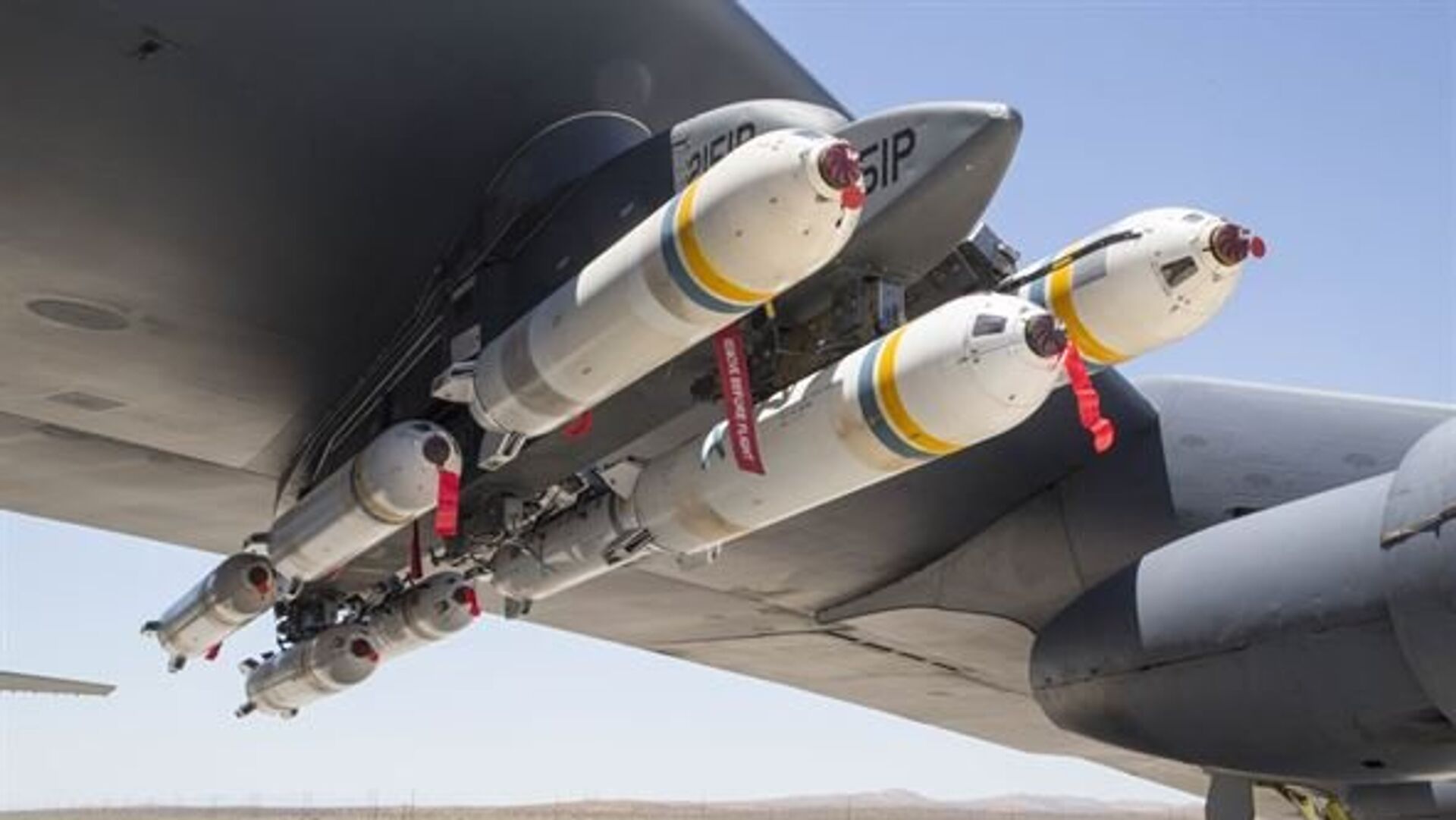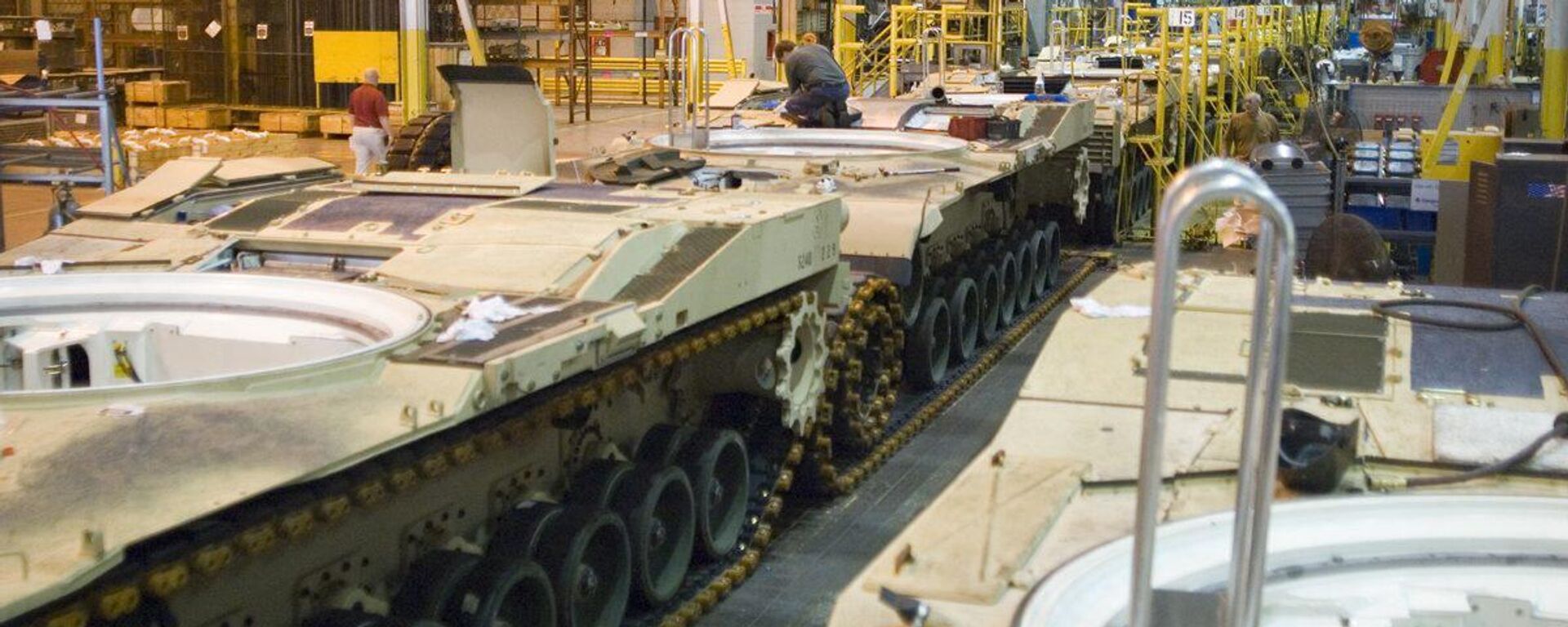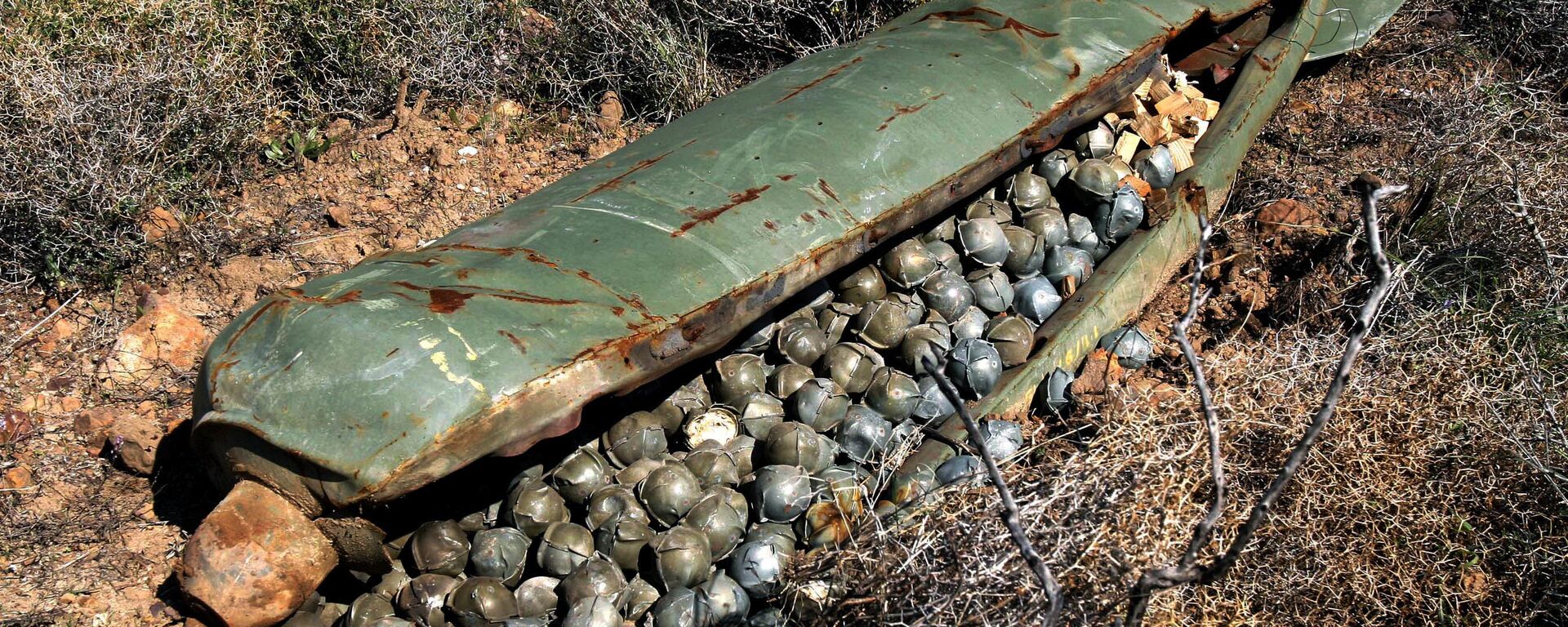https://sputnikglobe.com/20230706/us-based-arms-control-association-warns-against-supplying-cluster-munitions-to-kiev-1111700922.html
US-Based Arms Control Association Warns Against Supplying Cluster Munitions to Kiev
US-Based Arms Control Association Warns Against Supplying Cluster Munitions to Kiev
Sputnik International
The possible provision of cluster munitions to Ukraine by the United States would be escalatory and only increase the dangers to the civilian population, the executive director the Washington-based Arms Control Association (ACA) said on Thursday.
2023-07-06T14:51+0000
2023-07-06T14:51+0000
2023-07-06T15:08+0000
ukrainian crisis
us arms for ukraine
arms control association (aca)
sergey ryabkov
joe biden
ukraine
cluster bombs
military
https://cdn1.img.sputnikglobe.com/img/105616/31/1056163110_0:0:591:333_1920x0_80_0_0_19519622261c3ca810791886e696b238.jpg
The Biden administration is expected to announce Thursday it will send cluster bombs to Ukraine, media reported. "Some types of lethal U.S. and European military assistance to Ukraine, including cluster munitions, would be escalatory, counterproductive, and only further increase the dangers to civilians caught in combat zones and those who will, someday, return to their cities, towns, and farms," Daryl Kimball said in a statement. Kimball warned that cluster munitions are not the "winning weapon" for Ukraine, adding that the success of its ongoing counteroffensive does not hinge on the delivery of any one particular type of weapon. "Some U.S. officials claim that these weapons 'would be useful' against mass formations of troops and armor or broad targets, such as airfields, and that they would allow Ukraine to concentrate their use of unitary warheads against higher-value Russian targets," Kimball said. "The reality is more complicated. Cluster munitions will not differentiate a Ukrainian soldier from a Russian one. The effectiveness of cluster munitions is significantly oversold and the impact on noncombatants is widely acknowledged, but too often overlooked." The limited military utility and the substantial humanitarian dangers of cluster munitions were among the main reasons why the Pentagon halted their use in Afghanistan in 2002 and Iraq in 2003, Kimball noted. "It is why, in 2008, former Secretary of Defense Robert Gates issued an order to phase out by 2018 cluster munitions with an unexploded ordnance rate of greater than one percent, and it is why, in 2011, the Obama administration affirmed this policy," he explained. "It is why Congress, in 2018, enacted a series of export restrictions on cluster munitions with a failure rate in excess of one percent." Cluster munitions produce significant quantities of unexploded submunitions that can maim, injure, or kill civilians and friendly forces during, and long after, a conflict, Kimball said, citing the harm and suffering from US-made cluster munitions used in Afghanistan, Iraq, Serbia, and Yemen. "Rather than add to the chaos and side-step the rules of the global system, President Biden should have made it clear that cluster munitions need not and should not be part of the conflict in Ukraine," he said. President Joe Biden would be required to issue a waiver to authorize the export of cluster munitions to Kiev. Kimball believes that instead of transferring cluster munitions, Washington and its allies should focus more on "creative ways to provide Ukraine with the precision-guided munitions and the artillery shells." Earlier this year, Russian Deputy Foreign Minister Sergey Ryabkov urged the US against escalating tensions by providing Ukraine with cluster munitions.
https://sputnikglobe.com/20230704/us-war-industry-pulls-mainstream-media-strings-on-ukraine-1111657528.html
https://sputnikglobe.com/20230307/lethal-bomblets-what-are-cluster-munitions-and-why-does-ukraine-want-them-1108149745.html
ukraine
Sputnik International
feedback@sputniknews.com
+74956456601
MIA „Rossiya Segodnya“
2023
Sputnik International
feedback@sputniknews.com
+74956456601
MIA „Rossiya Segodnya“
News
en_EN
Sputnik International
feedback@sputniknews.com
+74956456601
MIA „Rossiya Segodnya“
Sputnik International
feedback@sputniknews.com
+74956456601
MIA „Rossiya Segodnya“
russian special military operation in ukraine, ukrainian crisis, cluster munitions, cluster bombs
russian special military operation in ukraine, ukrainian crisis, cluster munitions, cluster bombs
US-Based Arms Control Association Warns Against Supplying Cluster Munitions to Kiev
14:51 GMT 06.07.2023 (Updated: 15:08 GMT 06.07.2023) WASHINGTON (Sputnik) - The possible provision of cluster munitions to Ukraine by the United States would be escalatory and only increase the dangers to the civilian population, the executive director the Washington-based Arms Control Association (ACA) said on Thursday.
The Biden administration is expected to announce Thursday it will send cluster bombs to Ukraine, media reported.
"Some types of lethal U.S. and European military assistance to Ukraine, including cluster munitions, would be escalatory, counterproductive, and only further increase the dangers to civilians caught in combat zones and those who will, someday, return to their cities, towns, and farms," Daryl Kimball said in a statement.
Kimball warned that cluster munitions are not the "winning weapon" for Ukraine, adding that the success of its ongoing counteroffensive does not hinge on the delivery of any one particular type of weapon.
"
Some U.S. officials claim that these weapons 'would be useful' against mass formations of troops and armor or broad targets, such as airfields, and that they would allow Ukraine to concentrate their use of unitary warheads against higher-value Russian targets," Kimball said.
"The reality is more complicated. Cluster munitions will not differentiate a Ukrainian soldier from a Russian one. The effectiveness of cluster munitions is significantly oversold and the impact on noncombatants is widely acknowledged, but too often overlooked."
The limited military utility and the substantial humanitarian dangers of cluster munitions were among the main reasons why the Pentagon halted their use in Afghanistan in 2002 and Iraq in 2003, Kimball noted.
"It is why, in 2008, former Secretary of Defense Robert Gates issued an order to phase out by 2018 cluster munitions with an unexploded ordnance rate of greater than one percent, and it is why, in 2011, the Obama administration affirmed this policy," he explained. "It is why Congress, in 2018, enacted a series of
export restrictions on cluster munitions with a failure rate in excess of one percent."
Cluster munitions produce significant quantities of unexploded submunitions that can maim, injure, or kill civilians and friendly forces during, and long after, a conflict, Kimball said, citing the harm and suffering from US-made cluster munitions used in Afghanistan, Iraq, Serbia, and Yemen.
"Rather than add to the chaos and side-step the rules of the global system, President Biden should have made it clear that cluster munitions need not and
should not be part of the conflict in Ukraine," he said.
President Joe Biden would be required to issue a waiver to authorize the export of cluster munitions to Kiev.
Kimball believes that instead of transferring cluster munitions, Washington and its allies should focus more on "creative ways to provide Ukraine with the precision-guided munitions and the artillery shells."
Earlier this year, Russian Deputy Foreign Minister Sergey Ryabkov urged the US against escalating tensions by providing Ukraine with cluster munitions.




